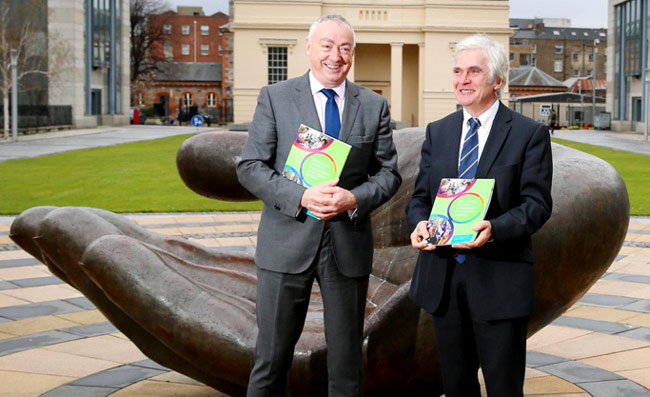A Higher Education Authority (HEA) report on student engagement in higher education institutions has called for greater transparency, inclusivity and diversity in decision-making processes, and has said that this must go beyond “formal legislative requirements”.
The working group, chaired by Prof Tom Collins, the chairperson of DIT’s governing authority and former interim President of Maynooth University, was established in 2014 “to examine and make proposals around the issue of student engagement in higher education institutions”.
The report warns against the “market model” of student engagement, common in private colleges and in North America, in which a student is viewed as a consumer and “locates them as outside users of the institution, as they purchase future ‘more-educated’ versions of themselves”. It instead advocates for a system in which the student is a partner in a learning community with “both the rights and responsibilities of citizens”.
The report defines student engagement as a two-way process, with students “ultimately responsible” for their own learning but also dependent on the culture and conditions that their institution provides.
In terms of institutional barriers to student engagement, the report cites the strain on union officers who often have to “juggle numerous demands” as well as a tendency for meetings to take place outside of the academic year. Focus group meetings also revealed that students felt there was a lack of evidence that feedback to institutions was being taken on board that that “necessary” clear lines of communication “at all levels between staff and students” were not always present.
Noting the importance of the chair of a governing body’s attitude to student involvement and Royal Irish Academy criticism of the nature of governing body and academic council meetings, the report says that it is “clear that in certain circumstances, much of the decision-making process takes place away from the governing body, either at committee level, or in an informal setting”. Having students as members of many committees, the report says, does not necessarily equate to high levels of engagement: “The student representative needs to be actively engaged in the discussion and decision- making processes, while other members must be open and receptive to the student voice. ”
Last year, several student and non-student members of Trinity’s Board criticised Provost Patrick Prendergast for what was characterised as a “heavy-handed, top-down lack of respect” for the views of Board members. The report says it is important to involve students in decision-making that happens in informal settings, too.
While there was consistency between institutions in terms of “adherence to legal requirements”, they highlighted the “significant variation” in the levels of student participation in decision-making. Institutions should “actively seek to gain insights and contributions” from all sectors in a university – something that should go beyond the “formal legislative requirements”.
The report also highlights other pitfalls with current student engagement, stating that It also draws attention to the fact that student officers hold office for less time than other college officers and, as such, are “limited in what they can achieve in these formal settings”. It also states that there is “a gender, age and ethnicity bias towards young, white and male sabbatical officers in most of the country’s individual students unions” and that apathetic student bodies and low voter turnout in elections are problems that students’ unions have to overcome.
Similarly, the report points to the “quick turnover of officers” in the Union of Students in Ireland (USI), saying that “Pressure is particularly heavy on the president” who must sit on many high-level committees.
The report was compiled from feedback from focus group meetings, consisting of representatives from students’ unions across Ireland, as well as draft consultations with USI and all higher education institutions, including those with students’ unions not affiliated with USI.







